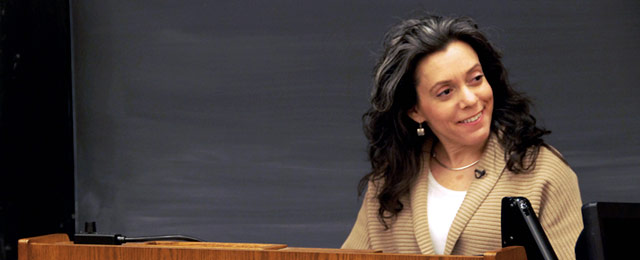The American Revolution

The American Revolution entailed some remarkable transformations–converting British colonists into American revolutionaries, and a cluster of colonies into a confederation of states with a common cause–but it was far more complex and enduring than the fighting of a war. As John Adams put it, “The Revolution was in the Minds of the people… before a drop of blood was drawn at Lexington”–and it continued long past America’s victory at Yorktown. This course will examine the Revolution from this broad perspective, tracing the participants’ shifting sense of themselves as British subjects, colonial settlers, revolutionaries, and Americans.
This Yale College course, taught on campus twice per week for 50 minutes, was recorded for Open Yale Courses in Spring 2010.
Syllabus
The American Revolution entailed some remarkable transformations–converting British colonists into American revolutionaries, and a cluster of colonies into a confederation of states with a common cause–but it was far more complex and enduring than the fighting of a war. As John Adams put it, “The Revolution was in the Minds of the people… before a drop of blood was drawn at Lexington”–and it continued long past America’s victory at Yorktown. This course will examine the Revolution from this broad perspective, tracing the participants’ shifting sense of themselves as British subjects, colonial settlers, revolutionaries, and Americans.
Bailyn, Bernard. Faces of Revolution: Personalities and Themes in the Struggle for American Independence. New York: Knopf, 1990.
Brown, Richard D., ed. Major Problems in the Era of the American Revolution, 1760-1791. 2nd ed. Stamford, CT: Cengage Learning, 1999.
Cray, Robert E. Jr., “Major John Andre and the Three Captors: Class Dynamics and Revolutionary Memory Wars in the Early Republic, 1780-1831,” Journal of the Early Republic, Vol. 17, No. 3. Autumn, 1997.
Gross, Robert A. The Minutemen and Their World. Farrar, Straus & Giroux, 2001.
Hamilton, Alexander, James Madison, and John Jay. The Federalist Papers. New York: Penguin, 1987.
McDonnell, Michael. “Popular Mobilization and Political Culture in Revolutionary Virginia: The Failure of the Minutemen and the Revolution from Below,” Journal of American History, Vol. 85, No. 3. December, 1998.
Paine, Thomas. Common Sense. New York: Penguin, 1982.
Raphael, Ray. A People’s History of the American Revolution. New York: HarperCollins, 2002.
Schwartz, Barry. “George Washington and the Whig Conception of Heroic Leadership,” American Sociological Review, Vol. 48, No. 1. February, 1983.
Wood, Gordon S. The Radicalism of the American Revolution. New York: Knopf, 1992.
Wood, Gordon S. The American Revolution: A History. New York: Modern Library, 2002. [optional]
Exams
There is one midterm exam covering material discussed up through Lecture 13. The final exam covers material from the entire course.
Papers
One paper, 3-5 pages long, is due the day of Lecture 9. A second paper, 7-9 pages in length, is due the day of Lecture 23.
First paper: 15%
Midterm exam: 20%
Second paper: 25%
Final exam: 30%
Discussion section participation: 10%